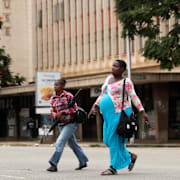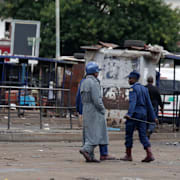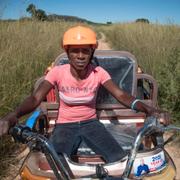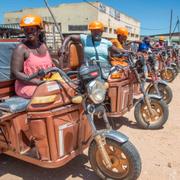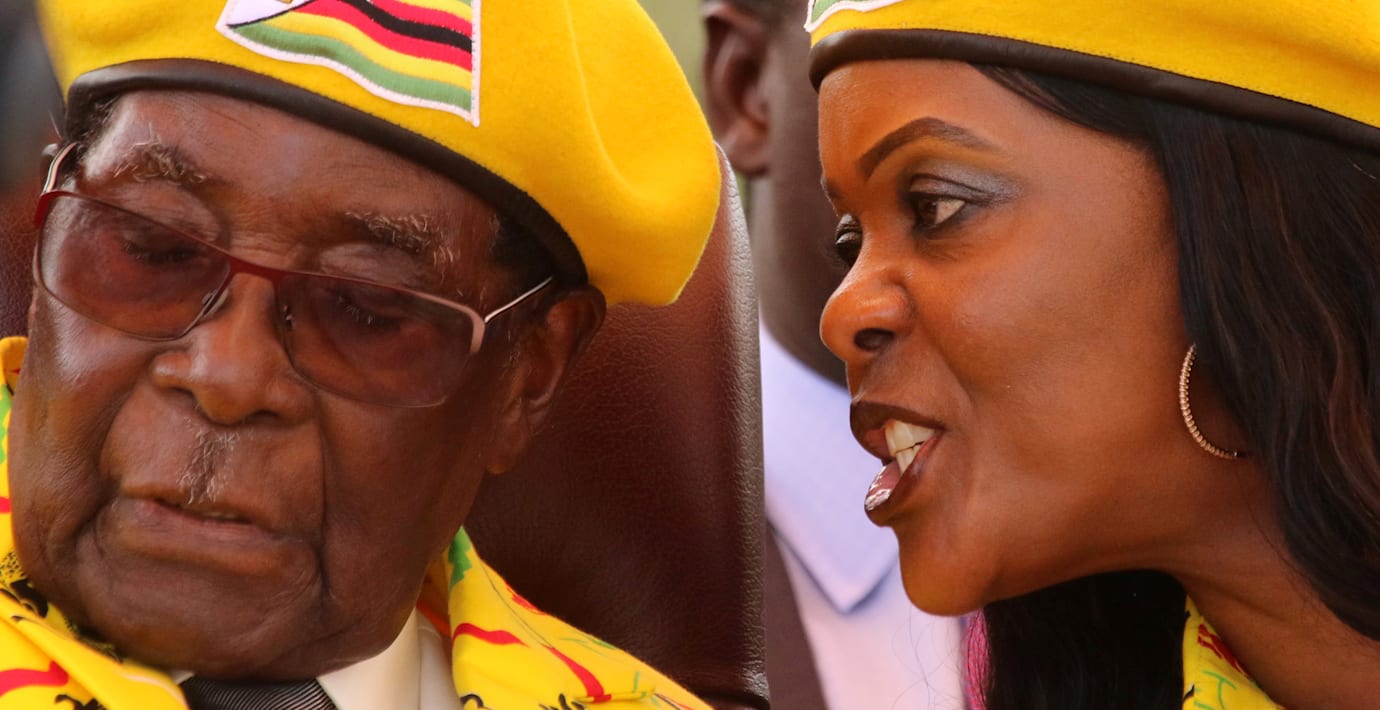
Mugabe får miljoner: ”Ser fram emot sitt nya liv”
Robert Mugabe kommer att få en stor summa pengar och åtalsimmunitet för sig och sina familjemedlemmar. Han ska ha slutit ett avtal med Zimbabwes nya styre innan han avgick tidigare i veckan, rapporterar Guardian. En källa nära uppgörelsen säger att ex-presidenten som minst kommer att få motsvarande 83 miljoner kronor.
– Han ser faktiskt fram emot sitt nya liv, att bruka jorden och bo på sitt lantställe, säger systersonen Leo Mugabe till AFP.
Efter Mugabes 37 år långa styre är Zimbabwes ekonomi körd i botten: Hälso- och sjukvården är näst intill icke-existerande, landet har enorma skulder och arbetslösheten uppskattas till över 80 procent.
bakgrund
Robert Mugabe
Wikipedia (en)
Robert Gabriel Mugabe (; Shona: [muɡaɓe]; born 21 February 1924 in Southern Rhodesia) is a Zimbabwean revolutionary and politician. He was the leader of Zimbabwe from 1980 to 2017, serving as Prime Minister from 1980 to 1987 and as President from 1987 to 2017. He chaired the Zimbabwe African National Union (ZANU) group from 1975 to 1980 and led its successor political party, the ZANU – Patriotic Front (ZANU–PF), from 1980 to 2017. Ideologically an African nationalist, during the 1970s and 1980s he identified as a Marxist–Leninist, although after the 1990s self-identified only as a socialist. His policies have been described as Mugabeism.
Mugabe was born to a poor Shona family in Kutama, Southern Rhodesia. Following an education at Kutama College and the University of Fort Hare, he worked as a school teacher in Southern Rhodesia, Northern Rhodesia and Ghana. Angered that Southern Rhodesia was a British colony governed by a white minority, Mugabe embraced Marxism and joined African nationalist protests calling for an independent black-led state. After making anti-government comments, he was convicted of sedition and imprisoned between 1964 and 1974. On release, he fled to Mozambique, established his leadership of ZANU and oversaw ZANU's role in the Rhodesian Bush War, fighting Ian Smith's predominantly white government. He reluctantly took part in the peace negotiations brokered by the United Kingdom that resulted in the Lancaster House Agreement. The agreement dismantled white minority rule and resulted in the 1980 general election, at which Mugabe led ZANU-PF to victory. When Southern Rhodesia was granted internationally recognised independence as Zimbabwe that April, Mugabe became the country's prime minister. Mugabe's administration expanded healthcare and education and—despite his Marxist rhetoric and professed desire for a socialist society—adhered largely to orthodox, conservative economic policies.
Mugabe's initial calls for racial reconciliation failed to stem deteriorating race relations and growing white flight. Relations with Joshua Nkomo's Zimbabwe African People's Union (ZAPU) also declined, with Mugabe crushing ZAPU-linked opposition in Matabeleland during the Gukurahundi between 1982 and 1985; at least 10,000 people, mostly Ndebele civilians, were killed by Mugabe's Fifth Brigade. Internationally, he sent troops into the Second Congo War and chaired the Non-Aligned Movement (1986–89), the Organisation of African Unity (1997–98) and the African Union (2015–16). Pursuing decolonisation, Mugabe's government emphasised the redistribution of land controlled by white farmers to landless blacks, initially on a "willing seller-willing buyer" basis. Frustrated at the slow rate of redistribution, from 2000 Mugabe encouraged the violent seizure of white-owned land. Food production was severely impacted, leading to famine, drastic economic decline and international sanctions. Opposition to Mugabe grew, although he was re-elected in 2002, 2008 and 2013 through campaigns dominated by violence, electoral fraud and nationalistic appeals to his rural Shona voter base. Following a 2017 coup and the loss of support from his own party, Mugabe resigned the presidency.
Having dominated Zimbabwe's politics for nearly four decades, Mugabe has been a controversial and divisive figure. He has been praised as a revolutionary hero of the African liberation struggle who helped to free Zimbabwe from British colonialism, imperialism and white minority rule. Conversely, he has been accused of being a dictator responsible for economic mismanagement, widespread corruption, racial discrimination, human rights abuses, suppression of political critics and crimes against humanity.
Omni är politiskt obundna och oberoende. Vi strävar efter att ge fler perspektiv på nyheterna. Har du frågor eller synpunkter kring vår rapportering? Kontakta redaktionen
